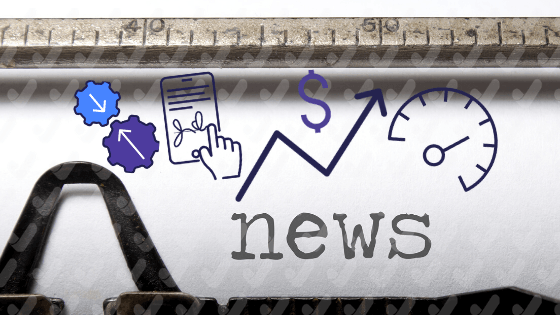Other industries will be covered in future editions. Please visit our blog and subscribe.
Banking News: PPP Round 2, Banking Apps, Digital Tools
However, banks were still heavily dependent on slow manual work to carry out the processes.
Financial institutions know that speed is the name of the game, as the funds are allocated on a first-come, first-served basis.
That’s why this second round of PPP will be defined by more efficient use of technology. Banks have learned their lessons from the first round, and are now better prepared to make use of APIs and automation to eliminate manual data entry and expedite the application and approval process.
- Experimental digital-first banking apps are still struggling: For several years now, large banks have been rushing to develop stand-alone digital-first projects to stay competitive with fintechs and neobanks.
Yet the new urgency to serve customers remotely has exposed the weakness of many of these innovation projects, which remain just that: projects, experiments.
JP Morgan Chase’s
digital banking app Finn folded last summer. Wells Fargo’s Greenhouse hasn’t made it past an initial seven-state pilot despite existing for a year and a half.
Chase CEO Jamie Dimon, reflecting on the failed initiative, said his lesson was that banks should hire outside innovation talent rather than just shuffle employees around to work on such projects. Good thinking. Banking executives must not give up on developing digital-first products –– but they should continuously assess what’s working and what’s not.
- Digital banking solutions are here to stay: The coronavirus has driven banks and credit unions to adopt digital solutions like never before. According to surveys run by PYMNTS and PSCU and described in Credit Union Innovation Playbook: New Payment Flows, credit union members are particularly interested in P2P payments and voice assistant features.
Credit unions are so far doing a pretty good job in trying to meet this demand, with 66% planning to focus on voice assistant innovations, and 55% on P2P payment innovations.
Of course, such innovations on their own don’t matter much if they aren't well executed (see digital-first banking apps as an example). Consumers are only satisfied if the services are easy to use (66%) and fast (73%).
Auto Finance News: Dealer Aid, GM Suspends Quarterly Dividend
- Hyundai Capital offers dealer loan aid: Hyundai Capital, the financial services arm of the South Korean automaker of the same name, is offering its dealerships new loans.
This move is meant to protect access to cash during the current economic slump. The move was spurred by IHS Markit’s prediction of an 18% drop in worldwide auto sales this year.
Each country’s local division is making its own adjustments. For example, Hyundai Capital America issued a $1.8 billion bond to promote liquidity as dealerships are forced to close their doors. It is also assisting dealers with floorplan deferrals and deferred interest payments for qualified customers.
- General Motors (GM) suspends quarterly dividend: On Monday, General Motors announced that it suspended its quarterly cash dividend on its stock and share buybacks to preserve hold onto cash during these challenging economic times.
It has also extended a three-year revolving credit agreement for $3.6 billion to 2022. This comes after the announcement earlier this month that GM and its captive finance company, GM Financial, extended a revolving credit agreement to April 2021.
Insurance News: Demands for Business Interruption Coverage Grow
- The threat of coronavirus-driven lawsuits is growing: As employers contemplate bringing employees back into the office, there is also awareness of possible liability. Questions they’ve never had to consider are starting to surface:
Are employers legally liable for a coronavirus transmission at the workplace?
How can such a transmission be definitively proven to have taken place at the office?
And while Congress’ coronavirus relief act waives or limits liability for healthcare providers and certain other groups actively fighting the pandemic, how are companies in other industries affected?
- Demand soars for business interruption coverage: Thousands of U.S. businesses are demanding business interruption claims due to the coronavirus, saying that their insurers should cover pandemic-related losses.
According to the American Property Casualty Insurance Association, monthly small business losses are now between $255 billion and $431 billion.
This is significantly larger than the $6 billion per month in premiums the industry charges for property insurance. While businesses feel they’ve earned the right to coverage thanks to years of paying business interruption insurance, many insurance companies are claiming that the funds simply aren’t there for such a hard-hitting, unforeseen event.
The transaction is anticipated to be finalized by the end of the second quarter, and is currently waiting for regulatory approval. The transferred business covers underwriting specialization in reinsurance, property catastrophe, financial institutions, marine issues, and international property facultative.



